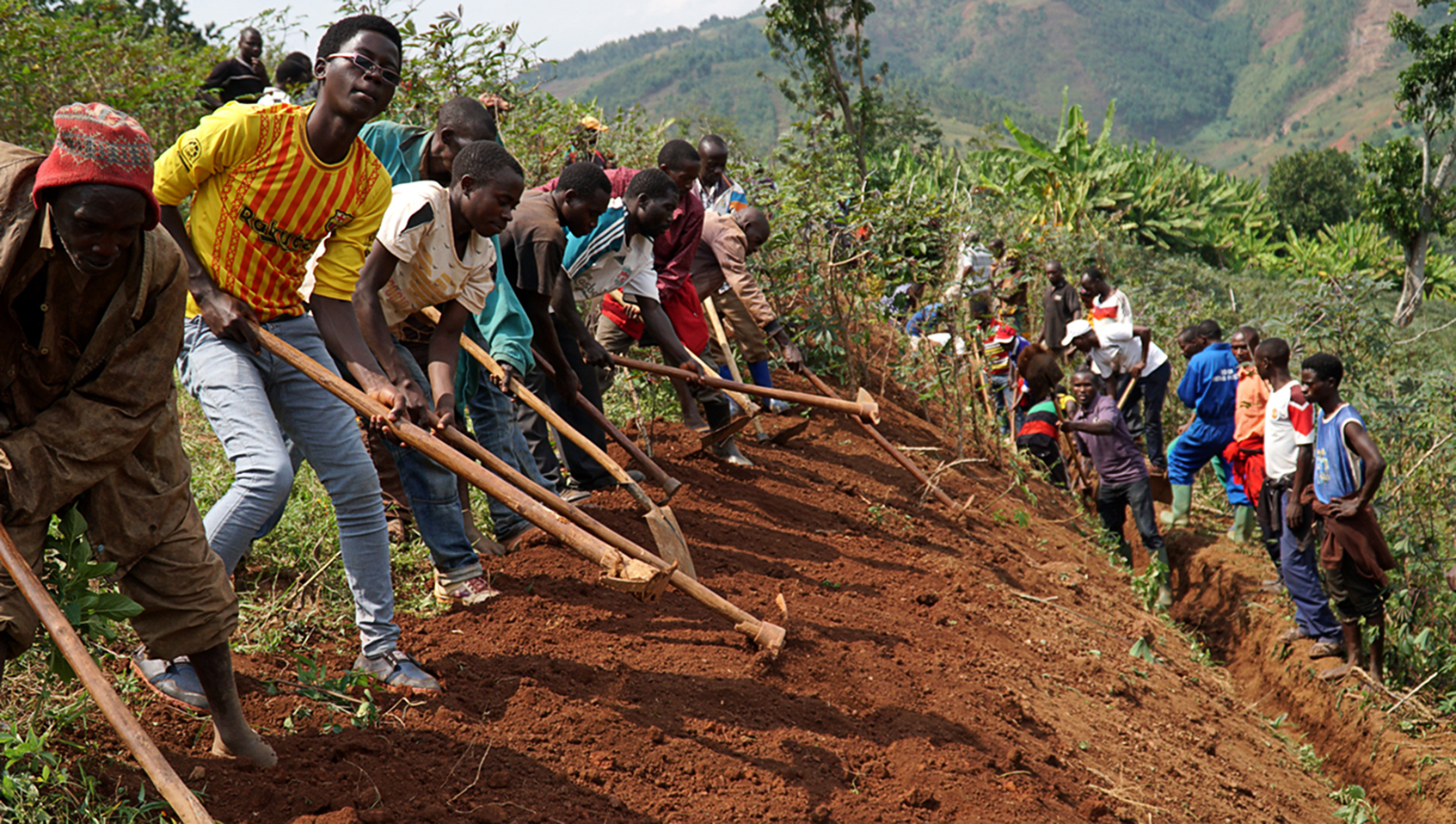“Living together” despite a history of cyclical violence – Identifying resilience capacities for reconciliation in the Great Lakes Sub-Region

Can reconciliation be sustainable between communities that have experienced the most extreme forms of violence? This is one of the questions posed by 150 high-level stakeholders, during a regional forum held in December 2015 in Kinshasa, where they mandated Interpeace and its partners to conduct a research on the experiences of reconciliation in Burundi, DRC and Rwanda, to identify how these experiences can be leveraged to increase social cohesion and support peacebuilding efforts. The three countries make up a sub-region of the Great Lakes that has been marred by decades of violent conflict, including the Genocide against the Tutsi, the civil war in Burundi and the first and second Congo Wars. Our latest report presents results of a research conducted in Burundi, Rwanda and the provinces of North and South Kivu in the Democratic Republic of Congo (DRC) to respond to this mandate by identifying the resilience capacities that foster reconciliation in the sub-region.
The report, entitled “Resilience Capacities for Reconciliation in the Great Lakes Sub-Region”, is the third published under the programme: Cross-Border for Peace in the Great Lakes Region, launched by Interpeace and six partners in the Region in 2011. As with the previous research, it employed Participatory Action Research (PAR), combining qualitative and quantitative approaches, and engaged more than 9,000 people in the region – 50% of the participants were women and more than 30% were people under the age of 30.
Advancing reconciliation in the Great Lakes Region
The report sheds light on how the population of the sub-region defines reconciliation as well as the enabling factors and obstacles to reconciliation. It highlights a number of existing capacities in the sub-region that enable people to overcome the distrust left by years of conflict and to live together peacefully. These capacities manifest through individual, relational, cultural and institutional practices, allowing communities to cope with the consequences of violent conflict, and more importantly, to positively and sustainability transform relationships. The report also presents recommendations and priority actions, formulated by stakeholders themselves, to advance reconciliation in the region.
Among the key findings, the study highlights the importance of peace education for changing attitudes of individuals and structures, deconstructing prejudices and stereotypes, and developing the capacity to live together in a shared regional space. Consequently, stakeholders recommended promoting peace education that builds upon the existing efforts of members of the community and that is aimed at building a regional identity and sense of belonging.
The report also demonstrates how cross-border relations have played a major role in building resilience to conflict, despite geopolitical tensions. The efforts of women and youth to maintain these relations despite and during times of conflict as well as during times of peace were perceived to be a potential strength to build upon. Therefore, stakeholders recommended amplifying these efforts through the expansion and strengthening of inclusive economic projects of women and youth.
According to the research, approximately two thirds of the population in the region have experienced some form of violence related to conflict. The report highlights how trauma stemming from past and ongoing conflicts play a large role in the lives of the people of the Great Lakes sub-region. As such, stakeholders recommended initiating and expanding national and regional trauma healing strategies that are designed to heal wounds of the past as well as foster reconciliation and social cohesion.
Furthermore, insecurity, and in particular the proliferation of armed groups in eastern DRC and its regional implications emerged as a significant challenge to the sustainability of reconciliation efforts,. Stakeholders recommended cross-border learning and collaboration on demobilization and socio-economic reintegration of ex-combatants.
A key take-away from the report is that recognizing, strengthening, and building upon the resilience capacities that exist across Burundi, DRC and Rwanda has the potential to enhance efforts to foster sustainable peace and reconciliation throughout the region.
-
Read the full report in French here.
-
Read Executive Summary in French here.
-
Read Executive Summary in English here.
Cross-Border for Peace in the Great Lakes region programme
The Cross-Border for Peace in the Great Lakes Region programme was launched in 2011 by Interpeace and its partners to address key challenges to peace and reconciliation. The programme is currently in its second phase and is implemented by the following partners: Interpeace, Réseau d'Innovation Organisationnelle (RIO); Action Pour la Paix et la Concorde (APC) in South Kivu; Pole Institute and Centre d'Etudes Juridiques Appliquées (CEJA) in North Kivu; Centre d'Alerte et de Prévention des Conflits (CENAP) in Burundi and Never Again Rwanda (NAR) in Rwanda. This report is the third published under this programme. The first, published in 2013 focused on "Stereotypes and Identity Manipulations” and a second report on "Land, Identity, Power and Population Movements" was published in 2016.
